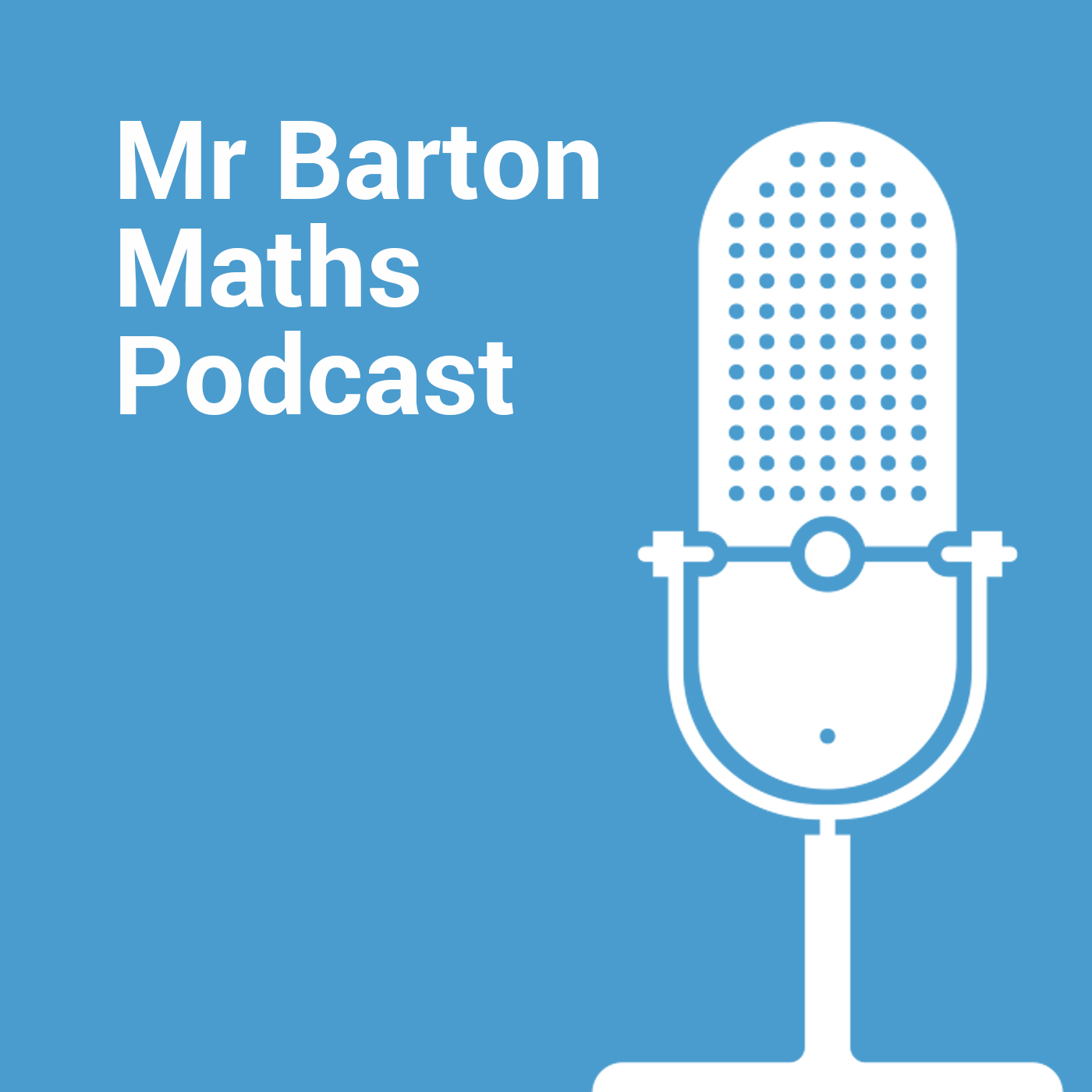
Craig Barton interviews guests from the wonderful world of education about their approaches to teaching, educational research and more. All show notes, resources and videos here: https://www.mrbartonmaths.com/blog/
Following his game-changing appearance on the podcast in early 2017, Greg Ashman returns to talk about his wonderful book, The Truth about Teaching. And this is one sequel that does not disappoint. We cover everything from effect sizes to growth mindset, calling in at game-based learning, slow-motion problem solving and whole class feedback along the way. This is definitely one to share with your non-maths teaching colleagues.
For more information about today’s guest, plus links to the websites, resources and ideas they mention, please visit the show notes page: http://www.mrbartonmaths.com/blog/greg-ashman-the-truth-about-teaching/

On this episode of the Mr Barton Maths Podcast, I spoke to Greg Ashman.
Now, long-time listeners will know that Greg first appeared on the show back in early 2017 where he opened my eyes to the wonders of Cognitive Load Theory. That conversation was a game-changer for me. Without it, I have no doubt that I would not have gone on to do all the reading and experimentation that I did, which would have meant there would have been no How I Wish I’d Taught Maths, and hence no scientifically proven way of inducing sleep in newborn babies across the land.
So, when Greg announced he had a book coming out – provocatively titled The Truth about Teaching – and I was lucky enough to be sent a copy, I just had to have him back on the show. And I was conscious that we covered new ground from our last interview.
So, in a wide-ranging conversation, Greg and I discussed the following things, and plenty more besides:
- Since we last spoke, what is the most interesting piece of research that Greg has read?
- Has he changed his mind about anything?
- How about a new favourite failure?
- What does John Sweller make of the growth in popularity of Cognitive Load Theory?
- Do the principles of Cognitive Load Theory apply to children aged 3 – 5?
- And then we turn our attention to Greg’s book:
- Is it significant that the book starts with classroom management?
- We discuss four easy-to-implement strategies and routines for improving classroom management
- How should a teacher go about finding out the behaviour policy of a school that they are considering working at?
- Then it is time for motivation:
- What does Greg mean when he says: “we should seek to motivate students about the thing that we want them to learn and not about something else”?
- Does Greg believe in giving students choice in their learning?
- How does he answer the question: “when will I ever need this?”
- What alternatives to explicit teaching – if any – does Greg use in his teaching?
- What is the best piece of planning advice Greg would give to any aspiring maths teacher?
- What does Greg’s marking and feedback process look like?
- What gets Greg through the tough times that inevitably happen when you are a teacher?
- Finally: can we fast-track teachers to expertise with books like Greg’s, or is there a necessity to make mistakes and gather up a bank of personal experiences?
I am going to come out and say it: I think this episode is another classic. For me, it is as good, if not better than our first conversation. We cover so much ground, from effect sizes to growth mindset, calling in at game-based learning, slow-motion problem solving and whole class feedback along the way. Greg’s book is aimed at new teachers, but as I am sure this conversation will demonstrate, there is so much in there for teachers of any age or experience. Finally, this is certainly one for your non-maths teaching colleagues to enjoy – in fact, I somehow manage to limit myself to just one maths-specific question.
Two quick plugs before we crack on:
Obviously, if you buy one book as a result of this episode, make it The Truth about Teaching. But if you are interested in reading about 12 years of maths teaching mistakes, then maybe take a chance on my book, How I wish I’d taught maths”, available from all good and evil book stores. And if you have read it, and you have time to give it a quick review, that would be ideal…. So long as it is a good one, of course.
And if you are interested in spreading the word about your product, service or event to 1000s of some of the most intelligent, engaged, connected podcast listeners in the world, then I am now offering the opportunity to sponsor episodes of this podcast. Just drop me an email at [email protected] to find out about the packages available.
Links to things mentioned in the episode:
John Sweller’s talk at researchED Melbourne
The contribution of schooling to learning gains of pupils in Years 1 to 6
Slow motion problems: a teaching method I have learnt this year
On Twitter Greg is @greg_ashman
His excellent blog can be found at: gregashman.wordpress.com
Greg’s book, The Truth about Teaching, is available here
My usual plugs:
- You can help support the podcast (and get an interactive transcript of all new episodes) via my Patreon page at patreon.com/mrbartonmaths
- If you are interested in sponsoring an episode of the show, then please visit this page
- You can sign up for my free Tips for Teachers newsletter and my free Eedi newsletter
- My online courses are here: craigbarton.podia.com
- My books are “Tips for Teachers“, “Reflect, Expect, Check, Explain” and “How I wish I’d taught maths”
Thanks so much for listening, and I really hope you enjoy the show!
Craig Barton
